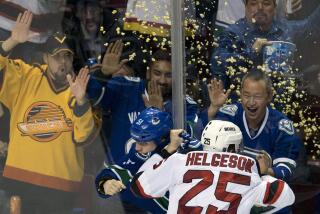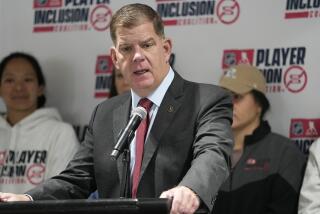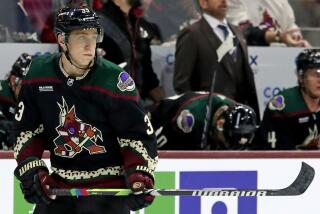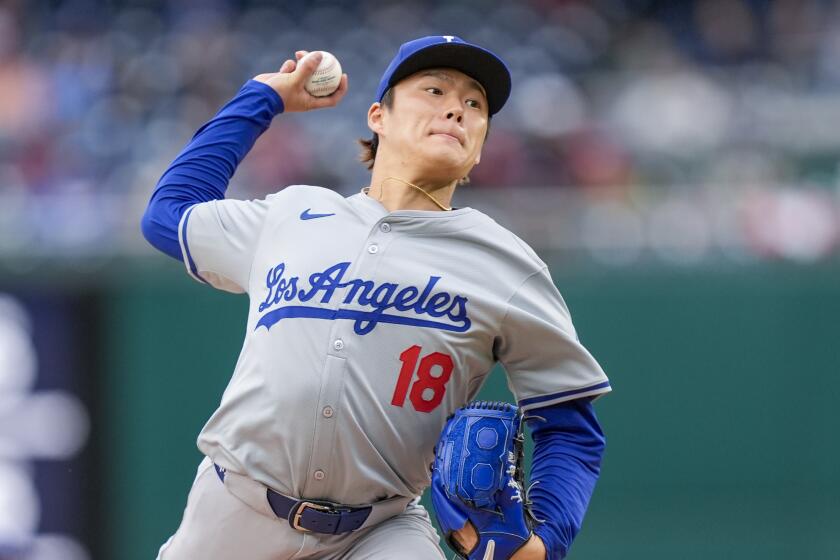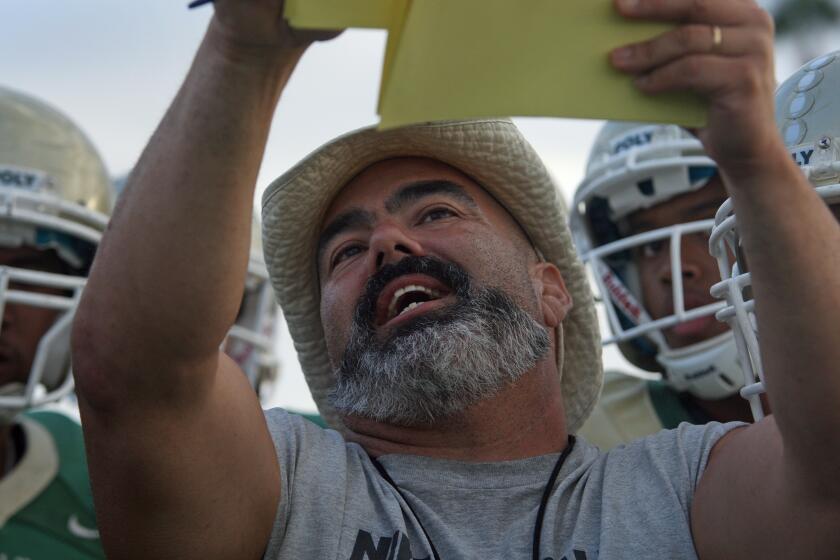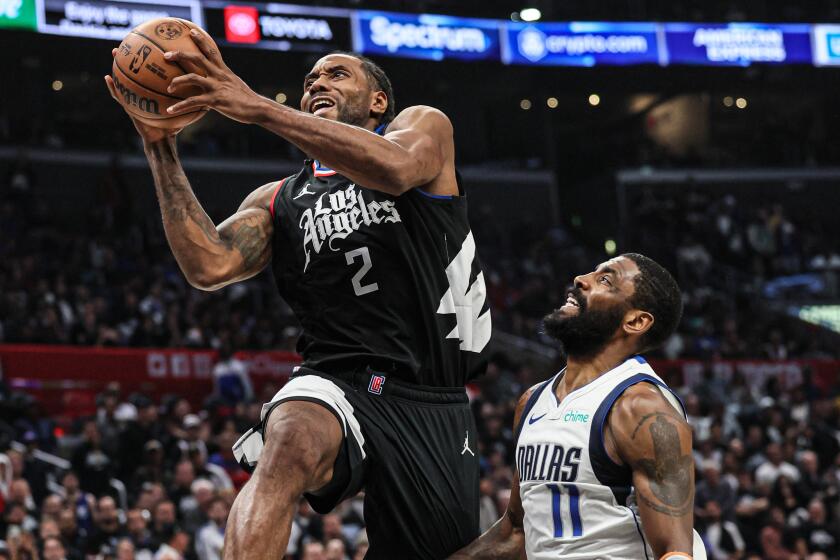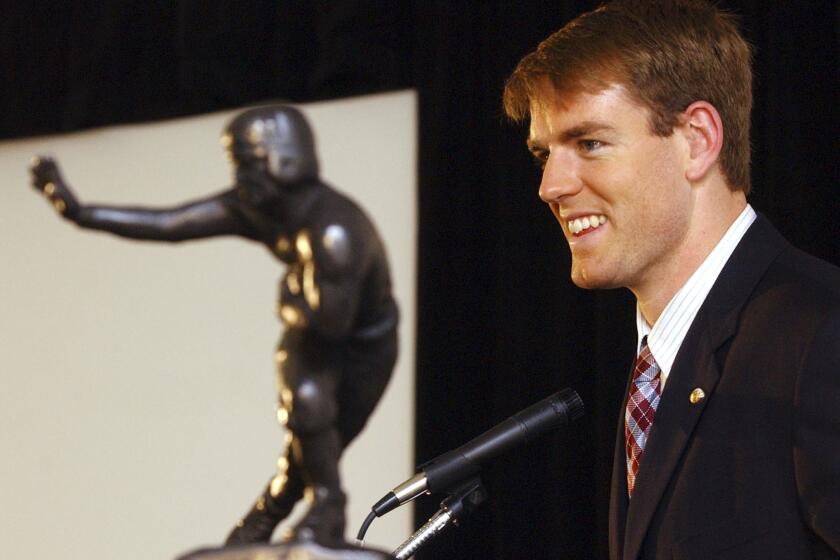Within the NHL and without, pressure to clamp down on violence
Two significant sponsors, one owner, a police force and Quebec’s premier have frowned on the NHL’s decision not to suspend Boston’s Zdeno Chara for his punishing hit on Montreal’s Max Pacioretty last week, a judgment reverberating around a league plagued by an increasing number of head injuries and public relations headaches.
Air Canada’s threat to withdraw its backing “unless the NHL takes responsibility to protect both the players and the integrity of the game,” and VIA Rail’s declaration that letting Chara off “does nothing to try to reverse the alarming trend of vicious hits that have sidelined some of the game’s greatest talents,” have put new pressure on the old boys’ club, which convenes Monday in Boca Raton, Fla.
A year ago, pressured to act by vicious hits that left several players with concussions, general managers approved a rule penalizing blindside hits and blows in which the head is the principal target. Analyzing and perhaps expanding Rule 48 will be a key topic during their three-day gathering.
“You can debate any penalty in the NHL today, but you’ve got to be really careful you don’t take the speed out of the game,” said Glen Sather, the New York Rangers’ general manager. “You can’t take the hitting out of the game. That’s what makes it interesting.”
But Chara’s hit on Pacioretty, which left the young Canadiens forward with a concussion and a fractured vertebra, triggered strong reactions. From the outside the NHL is facing unhappy sponsors, Quebec Premier Jean Charest’s accusation that the league isn’t quashing violence, and the possibility of criminal charges resulting from an investigation by Montreal police.
From within, there’s the voice of Montreal Canadiens’ owner Geoff Molson saying in a letter on his team’s website that he will not “accept any violent behavior that will put the players’ health and safety and risk,” and requesting “the support of the 29 other NHL owners to address urgently this safety issue.” Note the wording.
“There’s innuendo there. It’s almost like he’s saying, ‘We’ve got to take it out of the hands of the general managers,’ is the way it sounded to me,” Kings General Manager Dean Lombardi said. “So I guess you’ve got a jurisdictional issue too.”
Like there isn’t enough to worry about.
The league isn’t ready to adopt international rules and ban hits to the head. “Fans don’t want to see European hockey. That’s what we’re desperately afraid of,” Lombardi said. “Every one of us has had to sit through some of those games, and it’s agony. A big part of it is a lack of physical play.”
Improving rink safety should find consensus. Lombardi said eliminating the door from the bench to the ice was proposed a few years ago after a player fell into an open door and suffered serious injuries, and padding was suggested for stanchions like the one Pacioretty’s head struck in Montreal. The doors will stay but the stanchions surely will be cushioned.
How to balance safety with increases in players’ size, speed and strength will be discussed, especially as applied to the forecheck.
“We’ve speeded up the game so much we’re out of control a little bit,” Ducks General Manager Bob Murray said. “Maybe we should allow a little bit of interference — I call it making a player break stride. The speed of the game is wonderful when a guy has the puck. But sometimes you come in on the forecheck, and it’s too fast.” He suggested allowing more interference with body position but not the stick.
Lombardi said he has heard talk about improving the inconsistent supplementary discipline process as handled by vice presidents Colin Campbell and Mike Murphy.
“You don’t have a definitive system in place that identifies precedents — points of law, so to speak — so it can be applied more uniformly,” Lombardi said. “When it doesn’t have symmetry, it lends itself to people saying, ‘It was because it was this player or that player or this team or that team.’ ”
Whatever the league does, players ultimately must become less eager to knock each other into the hospital.
“Players have to respect each other, and a lot of times they don’t. But that’s a players’ association issue,” Sather said. “You can’t put every rule into the game to control the game entirely.”
twitter.com/helenenothelen
More to Read
Get our high school sports newsletter
Prep Rally is devoted to the SoCal high school sports experience, bringing you scores, stories and a behind-the-scenes look at what makes prep sports so popular.
You may occasionally receive promotional content from the Los Angeles Times.
